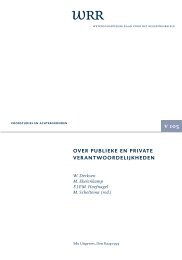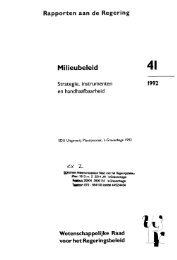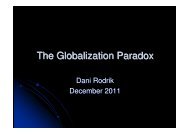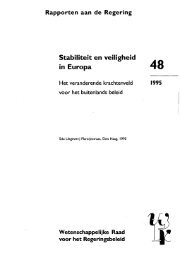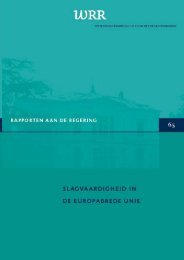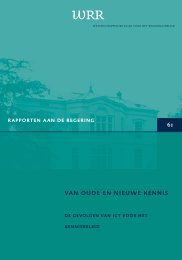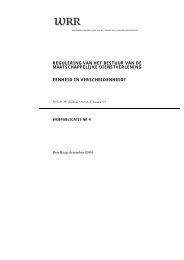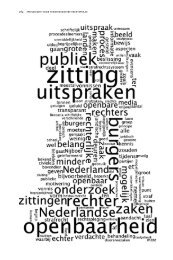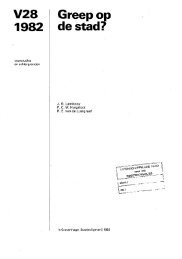De overheid als keuzearchitect? - Wetenschappelijke Raad voor het ...
De overheid als keuzearchitect? - Wetenschappelijke Raad voor het ...
De overheid als keuzearchitect? - Wetenschappelijke Raad voor het ...
Create successful ePaper yourself
Turn your PDF publications into a flip-book with our unique Google optimized e-Paper software.
public policy nudges: the government as choice architect<br />
have to do anything: two weeks later I was approached by somebody<br />
who said he read the column and was going to do this. So now there is<br />
an app for the iPhone that you can click on and signup in any state in<br />
the us. That is yet another way we could make progress.<br />
Second principle: give feedback. People can’t learn unless they get<br />
proper feedback. One example is this. Suppose you are painting the<br />
ceiling at home. You have white paint and you are painting over<br />
white paint. It is very hard to see where you have painted. Some<br />
genius – maybe the same guy from Schiphol airport – created a<br />
paint that goes on pink but then turns white. This means you never<br />
miss a spot because you get feedback. Here is another example of<br />
feedback. This little egg-shaped thing on the picture is called the<br />
ambient orb. It can be installed in people’s homes and it normally<br />
just looks like this. But if you start using a lot of energy, it starts<br />
glowing red. Simply installing these in people’s homes decreased<br />
energy used in peak periods by 40 per cent. And energy is all about<br />
reducing energies at the peak because that’s what determines how<br />
many power plants you have to build. Here is another example that<br />
is studied by the great psychologist Bob Cialdini and his team. They<br />
went around neighborhoods and tried to encourage people to use<br />
less energy. I think this was in a hot climate in places like Arizona,<br />
where they have air conditioners. They presented these door<br />
hangers and encouraged people either to save money or save the<br />
environment or be a good citizen. The effect of this was zero. But<br />
then they had a fourth condition where they said: truthfully your<br />
neighbors are using less power, you should too. That reduced the<br />
energy used by 6 per cent.<br />
15<br />
There is a company in the us called ‘O power’. We now get these in<br />
my home in Chicago. When you get your utility bill, they tell you<br />
how much energy you are using compared to your neighbors. They<br />
don’t name your neighbors, so there is no privacy concerns. They just<br />
say: here is your utility bill, it is 300 dollars, your neighbors’ bill was<br />
200 dollars, the average of your neighbors. It turns out that simply<br />
providing this information reduced usage by 2-6 per cent. It costs<br />
nothing. So the question is: why wouldn’t we do things like that?<br />
There is a lot of low hanging fruit. There are a lot of ways to alter behavior<br />
on climate change that cost nothing. We don’t have to invent



